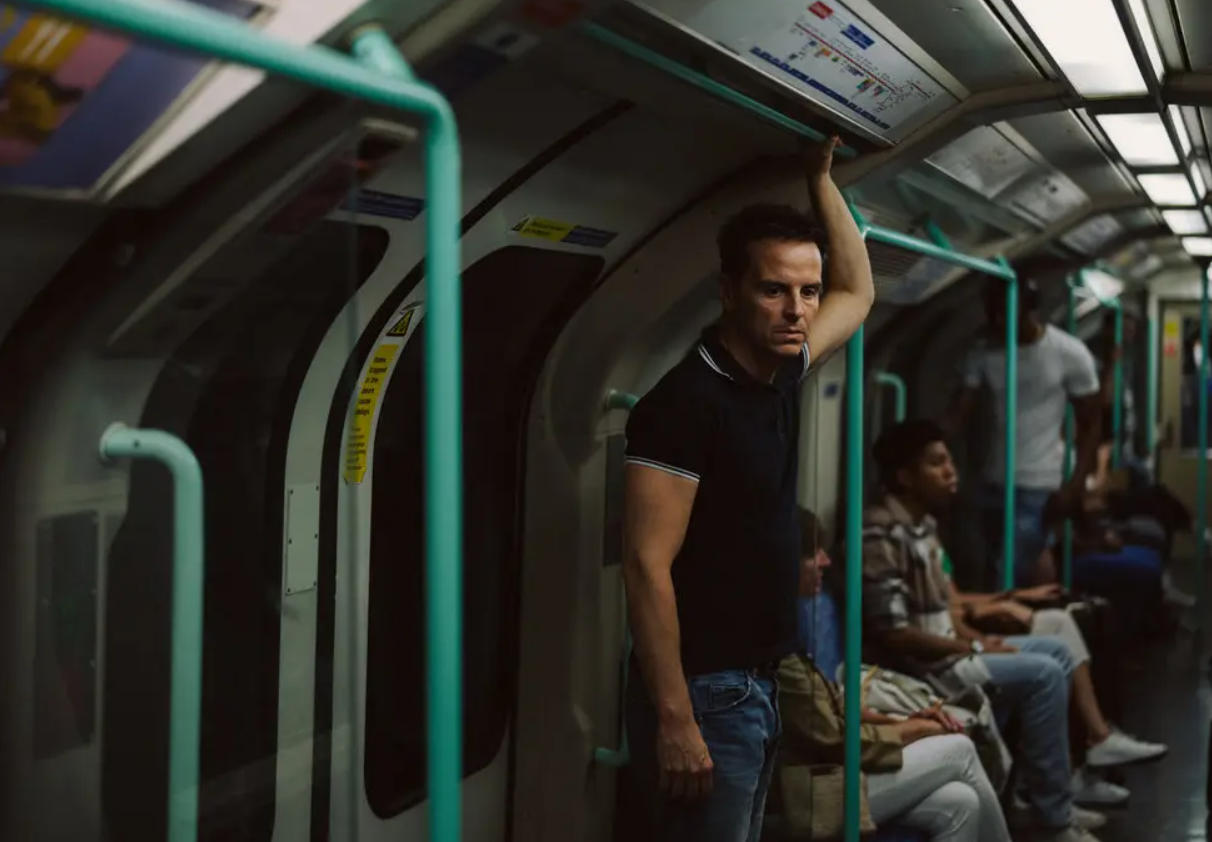
Lonely suburban existence is filmmaker’s nonsense, but urban apartment life – especially in new, soundproof buildings – can be just as isolating, maybe even more so. It’s easy to think of yourself as the last man on Earth, locked in a box in the sky.
This is the kind of flat in which Adam (Andrew Scott), the dreamer at the center of “All of Us Strangers,” has chosen to live in, located on the outskirts of London. Alone, sadly attempting to write a screenplay and wearing an extremely ugly sweater, he mostly lies on the couch watching TV and eating crisps. He can see the horizon from his window. But he is isolated from the city in the same way he has felt isolated from everything throughout his life. You come to understand that now, in early middle age, he is at his most secure from the outside looking in. Adam is gay; His childhood was tragic; He’s a writer, the kind of person his father always said knew less about the world than anyone else. Loneliness comes naturally to him.
“All of Us Strangers”, written and directed by Andrew Haigh, is based on the novel “Strangers” by Japanese author Taichi Yamada, about a divorced writer who meets a woman in his building. But Hai’s work (including “Weekend” and the TV series “Looking”) has often explored the intimate emotional landscape of queer men, and he found Yamada’s story a little less thrilling, a lot more slippery and closer to its heart. . Is going to pull. Made more poignant. Told close.
The first half hour makes us wonder what kind of film we are watching. There are moments when it seems as if Adam is not only figuratively but literally the last man on Earth. But one night, she meets Harry (Paul Mescal, sporting a moustache), who knocks on her door with a bottle of whiskey in his hand. Apparently they are the only two people who live in this strange building. Adam is polite but awkward, and does not let her in. He is comfortable in his solitude – or very scared of what it might mean to interrupt him. But Adam is also trying to write about his childhood (“Ext Suburban House 1987,” he types) and, almost without thinking, he finds himself on a train headed to the suburbs.
There, time itself changes and when he returns to his apartment, his humdrum life begins to take on dimensions. First tentatively, then passionately, she falls in love with Harry, slowly opening her wounds. Could life be different? Could unlocking her heart be worth the risk? And what would his parents say if they could see him now?
Haigh is a tremendously lyrical filmmaker, and “All of Us Strangers” unfolds in a place that feels like a dream or a hallucination, transforming life from monochrome to full color with the wave of love’s undulating soul. Gives. gives. gives. Is. However, this is a movie that is hard to characterize, which I will try not to spoil for you. Let’s just say this is a spectral story, which is naturally a bit fantastical, and thus comes close to sticky sentimentality more than once. I’ve watched it in front of tearful audiences while I struggled to stay connected, trying my best to unravel its threads logically. On second viewing, I surrendered to it, and that’s the way to go: just feel your way, let it wash over you.
In the end, somehow, it’s Scott’s performance that gets everyone singing along. He’s an extraordinary stage actor, but on screen, where you can see his eyes, he conveys suppressed pain without being cliché. (This is no small feat for Mescal – how lucky to get a movie with two talented, handsome, sad-eyed Irishmen – but Scott is center stage here.) At one point, he’s typically so adult-sized. Is of. it happens. Pajamas that are seen on 8 year old boys (and I promise it makes more sense in the movie), and somehow manages to evoke vulnerability and innocence rather than hilarious incongruity. Everything he does and speaks reveals his soul’s longing for the impossible: to see once again his parents, who died when he was 12, and to know How will they feel about him now?
“All Us Strangers” serves as a prism through which loneliness and its manifestations are refracted like colored lights on a wall. Adam is alone physically, emotionally, mentally, and artistically, a man untouched by most people. But perhaps her greatest sense of loneliness comes from the encounters and experiences that could have happened, but didn’t: the trips she and her parents didn’t take, the Christmas trees they didn’t cut down, the conversations they didn’t have. To be near. His sexuality wasn’t talked about, the solace his father never gave him when he was a boy crying alone in his room.
If you have lost your parents or someone close to you suddenly, and have not had the opportunity to bid them farewell and tell them all that happened.
wing, we try to conjure the dead. We comfort ourselves by imagining them forgiving us and accepting us. We live our lives surrounded by ghosts.
“I’ve always felt like a stranger in my own family,” Harry tells Adam, and once I was able to stop intellectualizing “All of Us Strangers,” the line hit me like a ton of bricks. I think it’s a sentiment more common than most of us admit, even to ourselves, even when we are surrounded by people who love us. We are, we know, strangers in our families and in our lives and our cities and our own bodies, and our life’s work is to move from the strange to something approaching the familiar. All, I think, of us.
